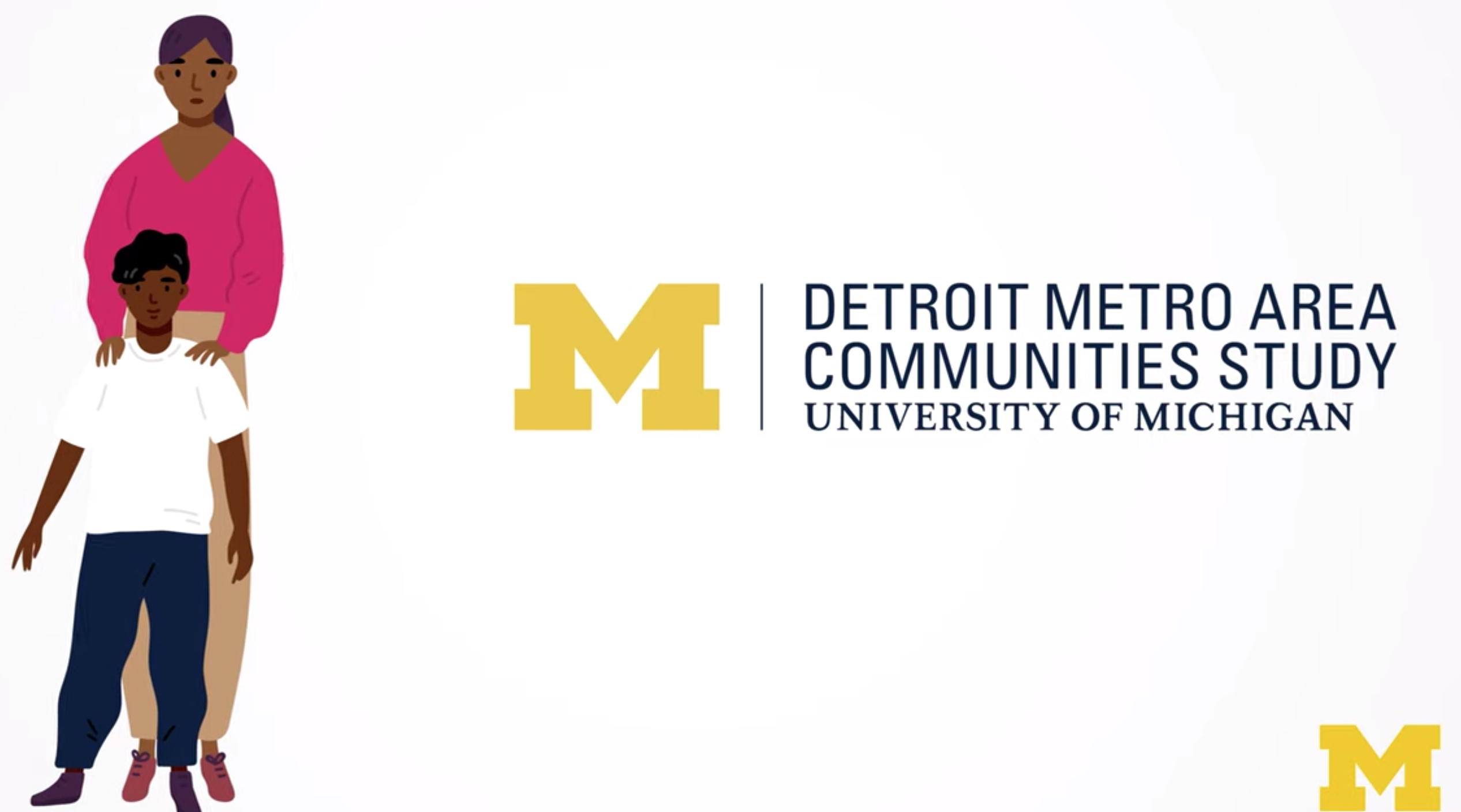Source: Michigan News

More Info
- Survey #3 results (May 28-June 11)
- Survey #2 results (April 23-May 7)
- Survey #1 results (March 31-April 9)
- Video: Detroit survey shows impact of COVID-19
- Detroit Metro Area Communities Study
As everyday activities in Detroit begin to resume, four out of 10 working Detroiters remain temporarily or permanently laid off, and many residents say they feel the state is reopening too soon.
According to the third rapid response COVID-19 survey from U-M’s Detroit Metro Area Communities Study, the unemployment rate in Detroit still sits around 45%—similar to last month’s estimates of 45%. The survey gathered responses between May 28 and June 11.
“The unemployment rate in the city of Detroit remains alarmingly high and has not changed very much in the past month. Also, 56% of those not currently working believe it is very unlikely they will return to work in the next month,” said Jeffrey Morenoff, one of the faculty research leads for DMACS, professor of public policy and sociology and director of the Population Studies Center at U-M’s Institute for Social Research.
Forty-one percent of working Detroiters say they’ve lost their jobs because of COVID-19. Of those who have lost their jobs, 73% say they have applied for unemployment benefits, and more than half who have applied say they have received unemployment benefits.
“We find that a substantial number of people are falling behind on their bills and facing financially precarious situations,” said Lydia Wileden, a doctoral candidate at U-M who analyzed the DMACS COVID-19 survey data. “One in five Detroit households say they have not paid at least one household bill in the past month, and 44% say they are concerned about facing one or more hardships such as being evicted, having their utilities shut off or going bankrupt in the coming months.”
Survey results also suggest that many families are struggling with rising costs and food shortages. Sixty-five percent of Detroit households report spending more at the grocery store in the last month, while 71% of those who report not having enough to eat in the past week point to the prohibitively high cost of food as a cause of their insecurity.
Though many Detroit households continue to face difficult economic conditions brought on by the pandemic, survey results suggest that residents perceive the pandemic to be less serious now than in previous months. Sixty-five percent of Detroiters say the pandemic is very serious for them personally, compared to three-quarters of respondents in the previous survey wave. Black residents and those who earn lower incomes or have lost their job in the pandemic are much more likely to still view the pandemic as very serious than other Detroiters.
The survey also found a drop in concerns about a number of behaviors thought to increase the risk of contracting the virus. Detroiters believe activities such as dining in at restaurants, playing on playground equipment and attending large gatherings to be safer than they did in prior survey waves. The proportion of Detroiters who viewed visiting friends in their homes as being very unsafe fell from 43% to 25% between survey waves.
At the same time, 56% of respondents reported feeling that restrictions on public activities have been lifted too soon, while only 12% feel they have not been lifted soon enough. Even among Detroiters who have lost their jobs due to the pandemic, a majority feel restrictions are being lifted too soon.
Younger residents are more likely than older residents to feel that restrictions have not been lifted soon enough. At the same time, Black Detroiters, who have disproportionately been victims of COVID-19 and are four times as likely as white residents to know someone who died from the virus, are more likely to feel that restrictions are being lifted too soon.
Other key findings include:
- Nearly half of Black Detroiters and a third of Latino Detroiters say they have lost their job due to the pandemic compared to just 22% of white Detroiters.
- 71% of Detroiters report receiving a stimulus check, while 12% are still waiting for their check and another 12% say they do not expect a check.
- 20% of Detroiters say they have been tested for COVID-19. Of those, 84% report a negative test, 8% report a positive test and 9% are still waiting for results. Overall, 4% of Detroiters say they have been diagnosed with COVID-19 and 8% say they have sought medical care for the virus.
- 38% of Detroiters report they have delayed medical treatment for a new or existing condition while 15% report they have received medical treatment in spite of the pandemic.
- Half of Detroiters believe that those who test positive for COVID-19 should be required to engage in contact tracing while 47% say they would be willing to engage in contact tracing.

